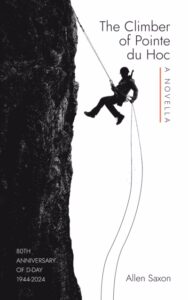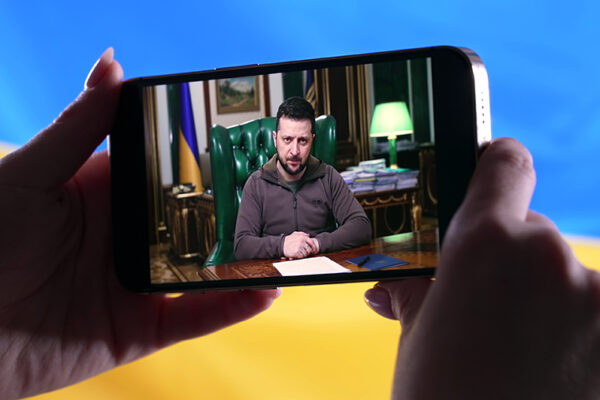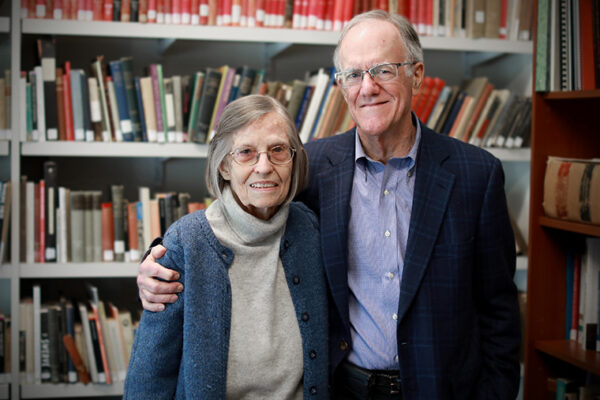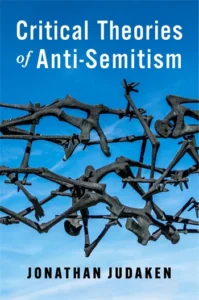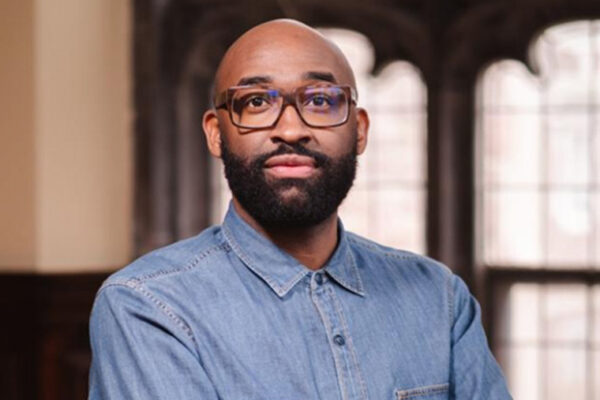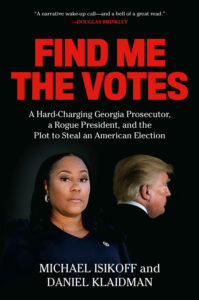The Climber of Pointe du Hoc
A novella
Published to commemorate the 80th Anniversary of D-Day in June, The Climber of Pointe du Hoc, by Allen Saxon, AB ’71, weaves a tender love story into the gripping — and grim — Allied invasion of Europe. Caleb Huddleston, a quiet young man from Wyoming, enlists in 1942 and quickly finds himself in the town […]
War magnifies politicians’ gendered behavior, public biases, research finds
In the early days of conflict when tension and fear are heightened, new research from political scientists in Arts & Sciences at Washington University in St. Louis finds women politicians are less likely to engage with the public and, when they do, are more likely to take on more nurturing roles.
A transformative gift for classics
The Department of Classics in Arts & Sciences at Washington University in St. Louis has received an estate commitment from honorary emeritus trustee John H. Biggs, PhD ’83, and his late wife, classics scholar Penelope Biggs, PhD ’74, MA ’68, to name the John and Penelope Biggs Department of Classics.
Tokarz honored by AALS
Karen Tokarz, the Charles Nagel Professor of Public Interest Law & Policy, received the William Pincus Award from the Association of American Law Schools during the organization’s conference on clinical legal education May 3.
Critical Theories of Anti-Semitism
Despite its persistence and viciousness, anti-Semitism remains undertheorized in comparison with other forms of racism and discrimination. How should anti-Semitism be defined? What are its underlying causes?
Caitlyn Collins
Caitlyn Collins, an associate professor of sociology in Arts & Sciences, has focused her career on researching and advocating for policy solutions for working mothers and their families. Now that she’s a working mother herself, her work has new meaning.
Fenderson wins Mellon New Directions Fellowship
Jonathan Fenderson, an associate professor of African and African American studies in Arts & Sciences at Washington University in St. Louis, has won a 2024 New Directions Fellowship from the Andrew W. Mellon Foundation.
Millennial Jewish Stars
Navigating Racial Antisemitism, Masculinity, and White Supremacy
A case study by Jonathan Branfman, AB ’06, on six young Jewish entertainers and what their success reveals about race, gender, and antisemitism in America.
Class Acts: Austin Schorfheide
Some of Austin Schorfheide’s happiest memories are working the family farm in Hoyleton, Ill. — bailing hay, milking the cows, planting corn and soybeans. So while Schorfheide knew he did not want to be a farmer himself, he does want to make life better for farming communities.
Find Me the Votes
A Hard-Charging Georgia Prosecutor, a Rogue President, and the Plot to Steal an American Election
The epic inside story of the prosecution of a president, by Michael Isikoff, AB ’74 and Daneil Klaidman.
Older Stories
